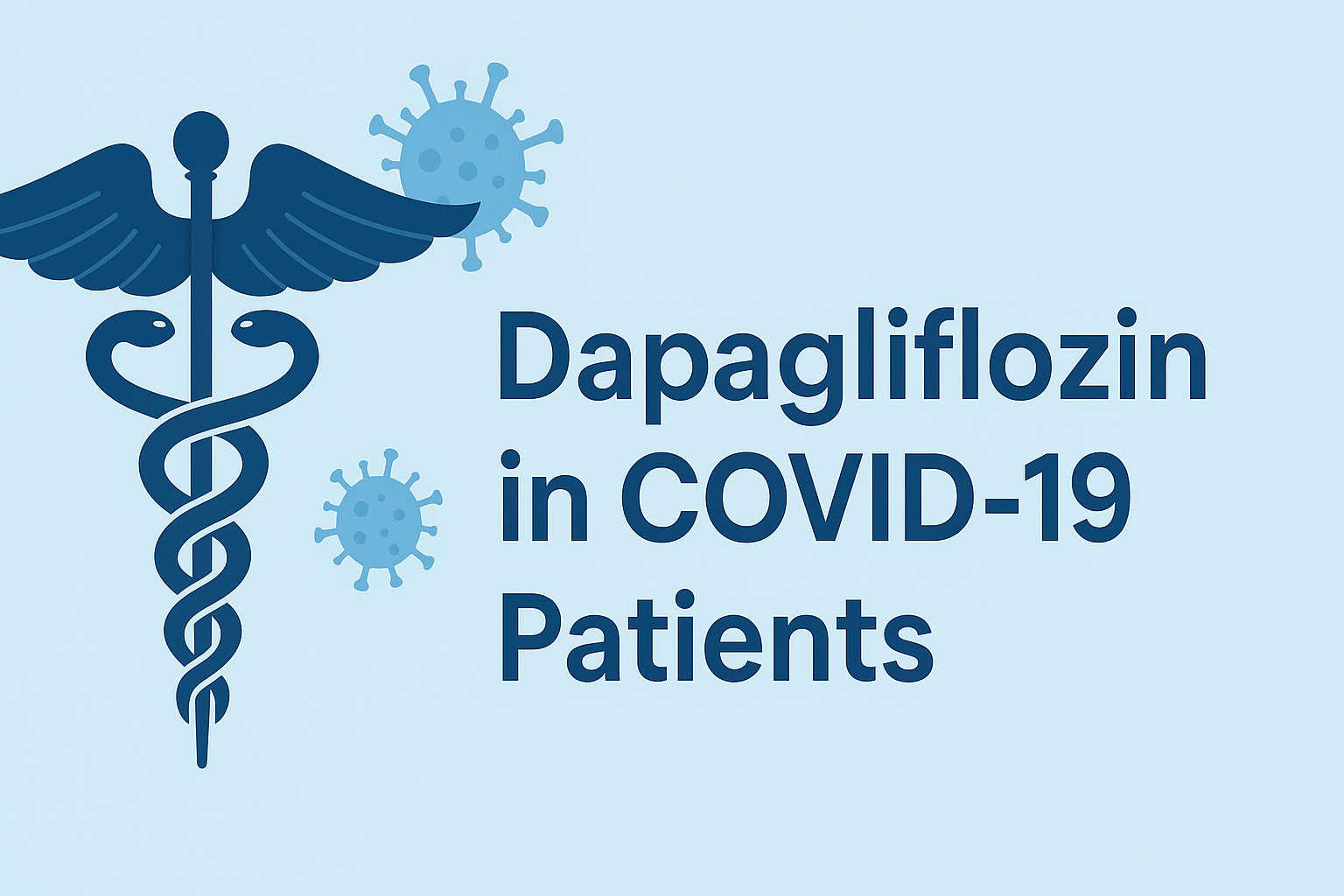
Sodium-glucose cotransporter-2 (SGLT2) inhibitors, such as dapagliflozin, have been studied in acute non-cardiovascular illnesses, but detailed data on their efficacy and safety in patients with and without type 2 diabetes (T2D) from double-blind randomized trials are limited. This secondary analysis of the Dapagliflozin in Respiratory Failure in Patients with COVID-19 (DARE-19) trial assessed the safety and efficacy of dapagliflozin in hospitalized COVID-19 patients with cardiometabolic risk factors, stratified by T2D status.
The DARE-19 trial randomized 1250 patients hospitalized with COVID-19 and cardiometabolic risk factors to dapagliflozin or placebo, with 636 (50.9%) having T2D. Dual primary outcomes included prevention (time to new or worsened organ dysfunction or death) and a hierarchical composite recovery outcome (clinical status change by day 30). Key biomarkers (serum bicarbonate, estimated glomerular filtration rate [eGFR], hematocrit, and glucose) and safety events were evaluated during hospitalization in patients with and without T2D.
In patients with T2D, the prevention outcome occurred in 10.9% of the dapagliflozin group versus 13.9% of the placebo group (hazard ratio [HR] 0.76, 95% CI 0.49–1.18). In patients without T2D, event rates were 11.5% with dapagliflozin versus 13.3% with placebo (HR 0.86, 95% CI 0.55–1.35; interaction p = 0.668). The recovery outcome showed no significant differences between dapagliflozin and placebo, irrespective of T2D status (interaction p = 0.222). Biomarkers (serum bicarbonate, eGFR, hematocrit) remained stable and comparable between treatment groups in both T2D and non-T2D cohorts. Serious adverse events occurred in 12.7% (dapagliflozin) versus 14.3% (placebo) in T2D patients and 8.5% (dapagliflozin) versus 11.9% (placebo) in non-T2D patients. Diabetic ketoacidosis was reported in two T2D patients on dapagliflozin.
Initiating dapagliflozin in hospitalized COVID-19 patients was safe and well-tolerated, with no increased risk of metabolic or renal adverse effects, regardless of T2D status. Although no significant efficacy benefits were observed for prevention or recovery outcomes, the favorable safety profile supports further exploration of SGLT2 inhibitors in acute illness settings.
Source: https://cardiab.biomedcentral.com/articles/10.1186/s12933-025-02875-6

